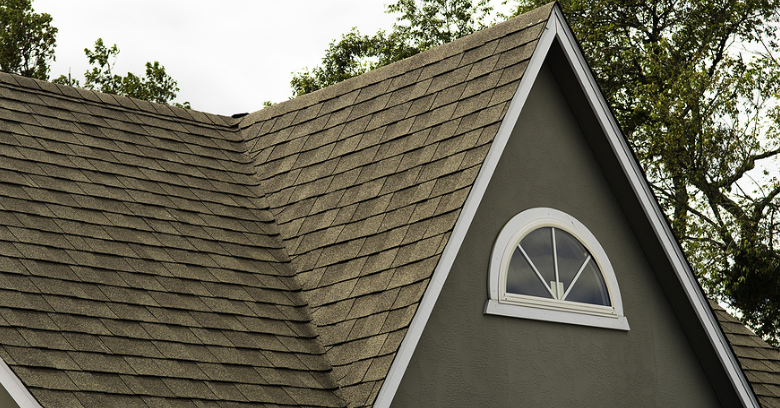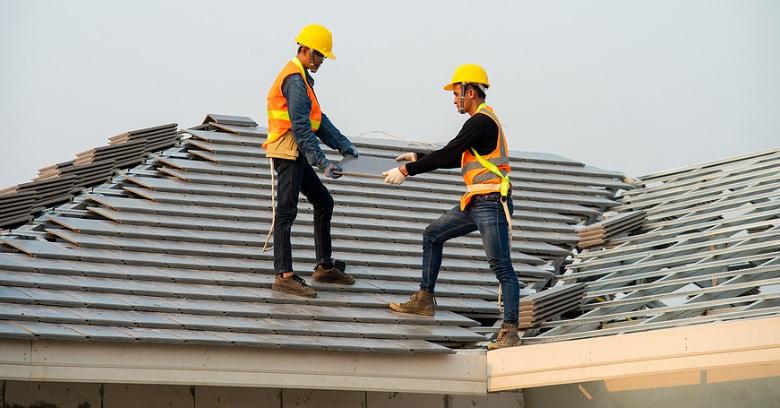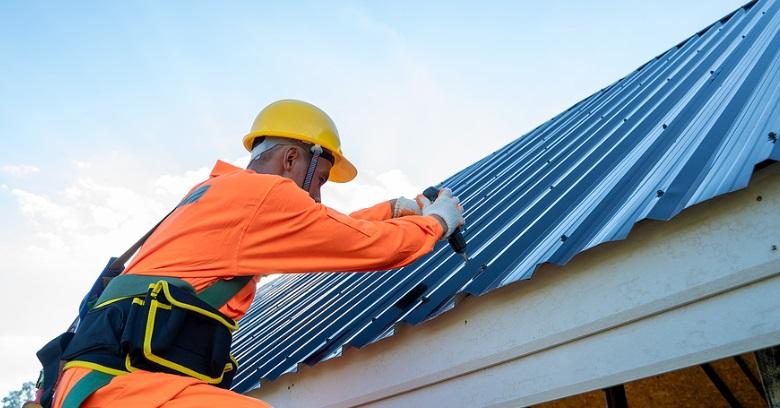Asphalt roofing is one of the most popular roofing options right now, used on millions of homes and other buildings throughout the world.
Available in a wide selection of colors, shapes, and sizes, asphalt roofs are attractive, affordable, and can be installed quickly in comparison to most other materials.
Though asphalt roofers may call shingle products by multiple names, most are nearly the same thing plus or minus a few details.
Learn the differences between asphalt shingles and what is today called a composition roof so you know what to expect when choosing your roofing materials.
What Are Asphalt Shingles?
Asphalt shingles are a broad category of shingle roofing that encompasses anything made with layers of asphalt fibers as part of its composition.
They have been in use for many decades to create asphalt roofs starting out as flat, three-tab or one-tab versions in their original design and progressing to today’s more durable and decorative styles.
Although they are called many different things now including architectural and composite shingles, this plain, flat, three-tabbed variety is what usually comes to mind when someone refers to asphalt roofs.
With so many better options available now, plain asphalt shingles are rarely used today.
What Are Composite Shingles?
Composite shingles installed by asphalt roofers are a type of shingle made from layers of asphalt and other materials which together form a composite material.
While it is technically the same thing as the original plain asphalt roofing that was a composite of multiple materials, composite shingles normally refer to current more modern and advanced shingle products.
Made with more layers and better materials, composite, architectural, or dimensional shingles are three-dimensional because they are thicker at the bottom so they look more like natural materials.
Installed by skilled asphalt roofers, they look infinitely more attractive than the original flat, three-tab shingles, are significantly more durable, and provide better weather and UV protection.
What Are Some Popular Options In Composite Shingle Roofing?
Because they are thicker and can be shaped during production, composite asphalt roofing is available in a large variety of shapes and designs to match the style and character of your home or building.
They come in multiple colors and thicknesses, mimicking different natural materials such as wood shakes or shingles, slate shingles or tiles, clay tiles, and others.
Additionally, some of today’s more advanced asphalt roof products are:
- Designed to provide increased UV reflection for greater energy efficiency,
- Hail-resistant.
- May include other premium qualities that far outweigh the protection of original flat, tabbed asphalt shingles.
Composite Shingles - The Asphalt Shingle Of Today
Although asphalt roofing and composite shingles are technically the same product, composite shingles are a much-preferred product due to better design, a nicer appearance, and a longer lifespan.
If you’re interested in seeing the full selection of asphalt roofs available to choose from, contact a local asphalt roofer to discuss your preferences and see examples of the beautiful shingles that can be installed on your home!


